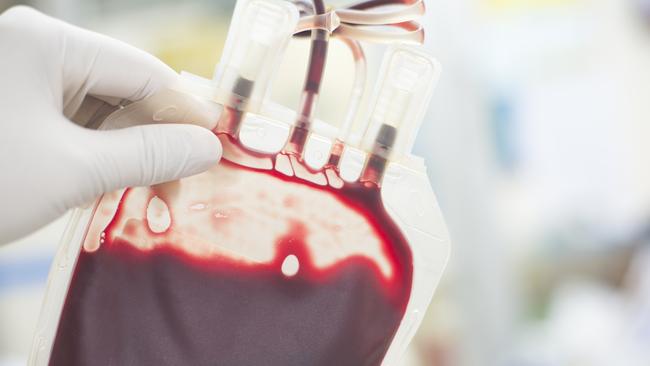Cancer link to blood boosts treatment hopes
New research suggests the blood of the elderly helps cancer spread, while the blood of the young keeps it contained.

The blood of the elderly helps cancer spread, while the blood of the young keeps it contained, scientists have claimed.
New research suggests that along with all the other reasons that ageing makes us susceptible to tumours, blood itself could play a role in propagating cancerous cells. The findings also suggest ways in which doctors could prevent this happening.
The study, published in the journal Nature, looked at what happened when cancerous cells were put in blood plasma taken from people over the age of 60 compared with people under 30.
Ana Gomes, from Weill Cornell Medicine in New York, carried out the research because of her previous investigations into ageing. “Towards the end of grad school, I realised that there were a lot of parallels between cancer and ageing, way more than the simple accumulation of mutations,” she said.
As we age our DNA gets damaged, and damaged DNA causes cancer – but the researchers thought something else was at work too. Modelling what this might be was hard, but blood provided a shortcut. “Blood gets input from every organ. I thought, ‘Is there something in the blood that changes cancer?’ ” she said.
Her research strongly suggested there was. When she put cancerous cells in old blood, they started to change. “It was so striking. Consistently, the cells became much more aggressive, much more metastatic and even showed resistance to chemotherapy.”
Looking for what might cause the difference, she and her colleagues found a dozen chemicals that significantly differed between the two bloods. When they applied one of them, called methylmalonic acid (MMA), to cancer cells, they recreated the effect – suggesting that it was the cause.
MMA is produced by every cell in our body, but we get less good at clearing it out as we age. Dr Gomes said that it is not clear how MMA apparently promotes cancer. If her study does find a greater risk of tumours spreading, it suggests that understanding – and perhaps stopping – MMA could be the key to better treatment.
“One easy thing to do is use this as a biomarker,” she said. “In advanced cancers, usually when we diagnose as metastatic we are at the point of no return. If there is a biomarker, we can look in the blood, see this individual is likely to have cancer that is more aggressive, and that then informs what kind of therapeutics we give the patient.”
Another approach is to find drugs that block MMA, which could be given to already-diagnosed cancer patients to stop tumours spreading to other organs.
Dr Gomes and her collaborators are looking at finding molecules to slow its production, and also at research that could provide more evidence of its effect – in particular to see if MMA levels differ in patients who go on to have more aggressive cancers.
Robert Insall, a researcher at the Institute of Cancer Sciences at Glasgow University, said: “This work adds another important piece to (cancer’s) complicated jigsaw. These changes in metabolism likely interact with many other factors, emphasising that every aspect of human biology affects cancer, especially as we age. There is much more to learn, but every discovery like this helps us understand different cancers and how to stop them.”
The Times






